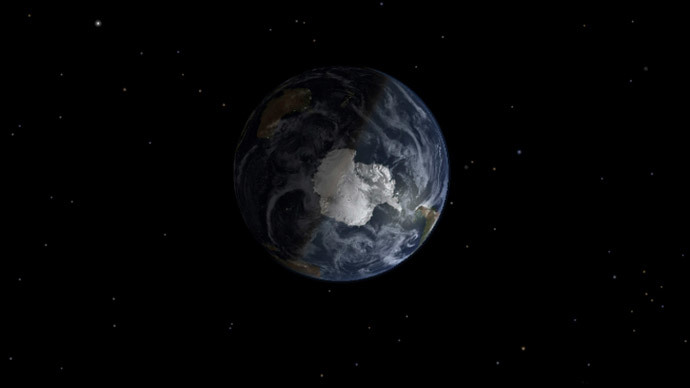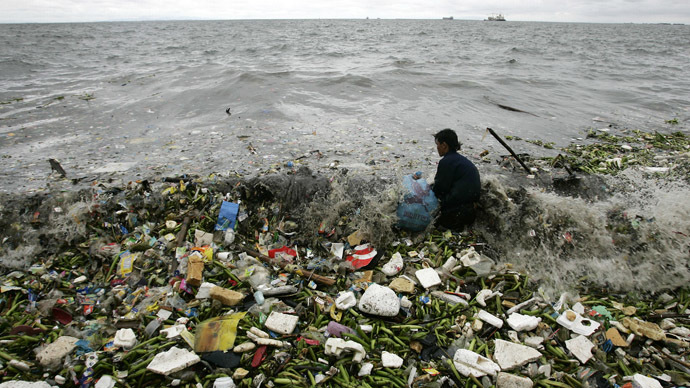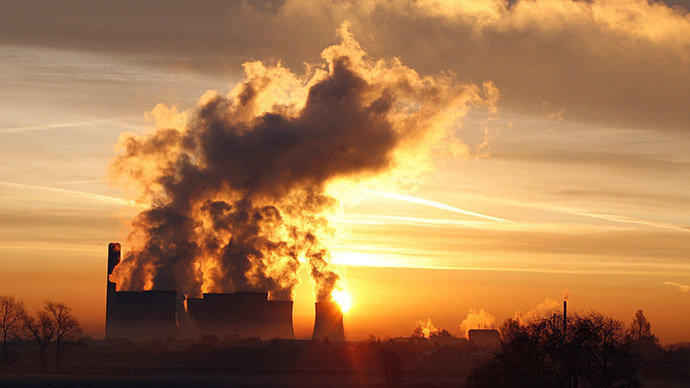Earth closer to 'irreversible changes' as humanity crosses 4 of 9 planetary boundaries

Earth is slipping towards the “danger zone” as humanity has crossed four of nine environmental phases, so-called planetary boundaries, bringing closer potentially “irreversible changes,” a high-profile study claims.
A combination of factors, including climate change, shifting agriculture patterns and other activities that cause biological and chemical changes to nature (not least of which is the use of fertilizer) have gotten us closer to “the danger zone” from which there’s no return, a study in the journal Science, published Thursday, claims.
“We’re running up to and beyond the biophysical boundaries that enable human civilization as we know it to exist,” said co-author of the study Steve Carpenter, director of the University of Wisconsin-Madison Center for Limnology, as cited by the university's website.
Carried out by 18 leading experts in their fields, the study entitled ‘Planetary Boundaries: Guiding human development on a changing planet’ points out that human activity is changing the planet functions, destabilizing complex interactions between people, oceans, land and the atmosphere.

"For the first time in human history, we need to relate to the risk of destabilizing the entire et," one of the authors of the study, Professor John Rockstrom of Stockholm University, told the Thomson Reuters Foundation. His colleague, Professor Will Steffen, believes that “past a certain threshold, curbing greenhouse gas emissions, biodiversity loss, or land-use change… may not reverse or even slow the trends of Earth System degradation, with potentially catastrophic consequences.”
The report is based on the idea of nine ‘boundaries’ that originated in 2009. Each phase stands for boundaries within which humanity can live sustainably and what that would entail.
The nine planetary boundaries
1. Climate change
2. Change in biosphere integrity (biodiversity loss and species extinction)
3. Stratospheric ozone depletion
4. Ocean acidification
5. Biogeochemical flows (phosphorus and nitrogen cycles)
6. Land-system change (for example deforestation)
7. Freshwater use
8. Atmospheric aerosol loading (microscopic particles in the atmosphere that affect climate and living organisms)
9. Introduction of novel entities (e.g. organic pollutants, radioactive materials, nanomaterials, and micro-plastics).
Each is marked by an irreversible change to our environment and, once reached, is followed by a period where we can either act or let it all slip further. And “given the pace of change, we can no longer exclude the possibility of reaching critical tipping points that could abruptly and irreversibly change living conditions on Earth,” the report says.
Back in September, a WWF report said that the Earth has crossed three of out the nine identified "planetary boundaries,” which it described as “potentially catastrophic changes to life as we know it,” including biodiversity, carbon dioxide levels and nitrogen pollution from fertilizers.
READ MORE: Wildlife populations decline by over 50% since 1970 – WWF
Scientists consider climate change to be at the top of this list of planetary boundaries, the researchers believe.
"We are at a point where we may see abrupt and irreversible changes due to climate change," Rockstrom continued, referencing particularly the danger of melting Arctic ice sheets, which would release large amount of greenhouse gases.
According to the study, our planet was “remarkably stable state” for almost 12,000 years. This however changed roughly 100 years ago, according to Carpenter, who said that “everything important to civilization” occurred during that precise stretch of time – from agriculture to the industrial revolution.

The paper will be discussed at the World Economic Forum in Davos, Switzerland next week, presented as a wake-up call to policymakers. It will also be incorporated into the UN’s upcoming global strategy in September, for when the current Millennium Development Goals expire.













